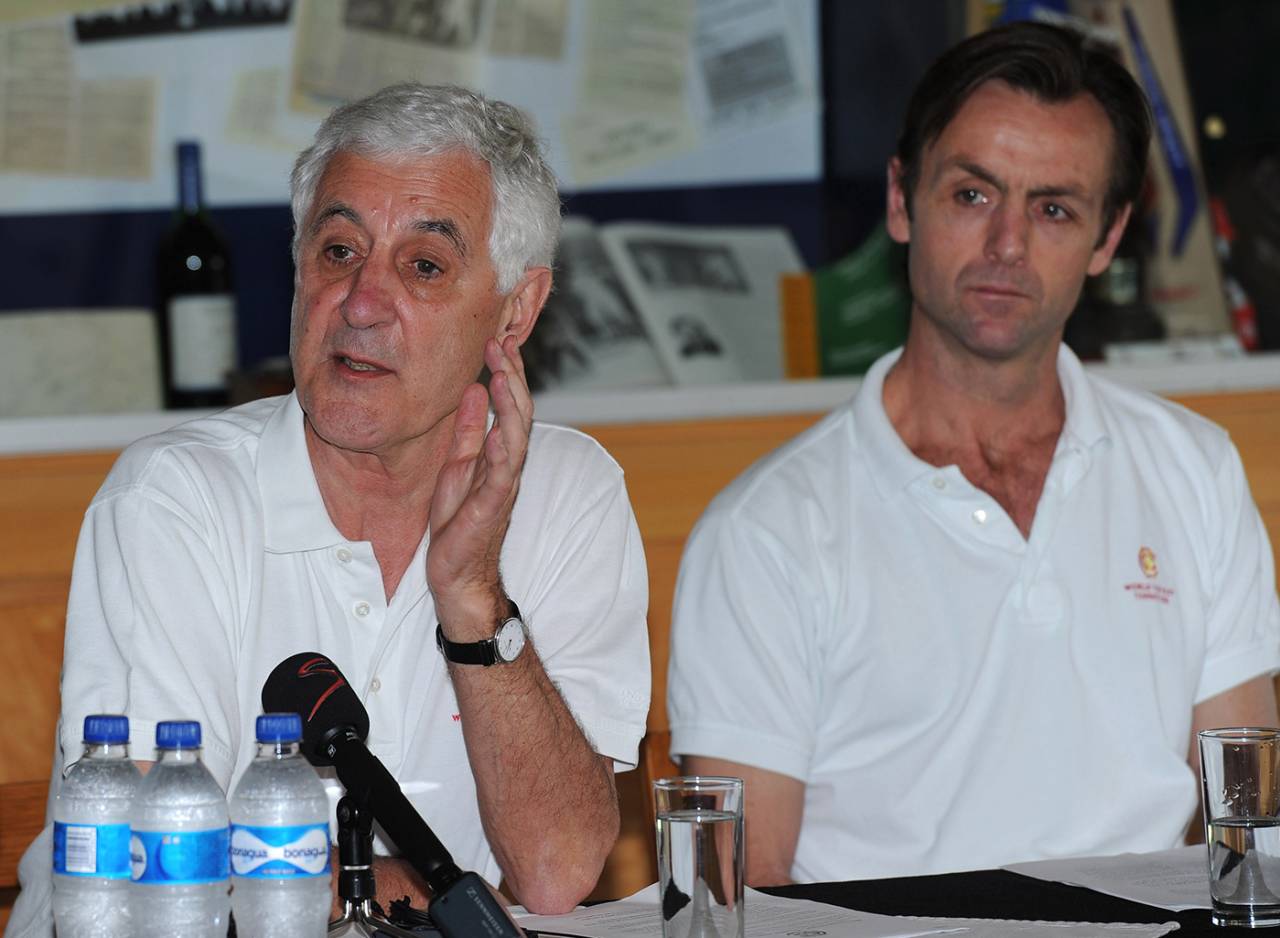Let us begin with two lists. Firstly, an England cricket team from the late 1970s: Geoff Boycott, Graham Gooch, Derek Randall,
Mike Brearley, David Gower, Ian Botham, Geoff Miller, Bob Taylor, Phil Edmonds, Chris Old, Bob Willis. Now another group of names, its order determined only by the alphabet: Alan Watts, Steve Waugh, the West Indies, Rowan Williams, Bob Willis, Donald Winnicott, John Wisdom, Ludwig Wittgenstein, William Wordsworth.
That England side is not light on strong characters. Mike Brearley's skill, which he has explained and analysed in previous books, was to blend those characters into a successful team, one in which talented cricketers were helped to find their best form. One has only to consider England's relatively recent Test match history to see what happens when competent leadership is absent or when big personalities are allowed to dominate.
The second list was plucked from the index of Brearley's latest offering On Form, which was published last September. The sequence is entertaining in a slightly trivial way if one ponders in what other book or context those eight people and one team might be found together. However, it is also useful in that it indicates the breadth of reference Brearley employs in his investigation of what it means to be on form, how such a state might be maintained, and what distinguishes it from being "in the zone", a condition of which the author is suspicious. He writes: "There is a slender margin between being in the zone in a creative and constructive way, and on the other side slipping into arrogance, omnipotence and obliviousness to risk. Losing the capacity to stand aside and watch with a professional's eye may be suicidal."
On Form - the title is playfully ambiguous - has already gathered many plaudits and those readers still thinking of buying a copy can be encouraged that our list of names reflects much more than an indexer's competence. To adapt the philosophical distinction often cited by Jonathan Miller, names are not mentioned so much as used, often in considerable detail, to unpack and investigate themes. Starbuck's famous principle in Herman Melville's Moby-Dick, "I will have no man in my boat who is not afraid of a whale", prompts this from Brearley: "A measure of anxiety forces us to concentrate fully on the task in hand. Appropriate fear, with its incitement to caution, is part of what distinguishes bravery from bravado, and helps us avoid going over the top." One result of this thoughtful approach is that reading On Form is a wonderfully demanding experience, one in which this reviewer had the slightly weird feeling that he was thinking about these matters alongside the writer. Another is that Brearley's wide-ranging survey allows discussion of form as it applies to teaching, medicine, music and other pursuits. There is even a fine chapter on writing.
Of course there are frequent references to cricket and psychoanalysis, the two areas in which Brearley has spent most of his professional life. ESPNcricinfo readers can be reassured that they will find plenty of references to the author's own sporting career and his captaincy of successful England and Middlesex teams. Yet what is quite as interesting as the brief discussions of leadership are the sections in which Brearley engages in self-analysis. Why was he not a better Test match batsman? How have the lessons he learned when an international sportsman been adapted to his other lives? How could it have been that he spoiled his best chance of scoring a Test match century by accepting an invitation to be a "minor trophy" at a dinner party?
Those cricketers who wish to raise their current batting average from say, 22 to 35 and want to know how Test batsmen made similar improvements might be disappointed by a book that does not provide unequivocal answers to such questions. Rather it seeks to clarify such questions, offers signposts and points out dangers. The application of these offerings will depend on the reader and their own cricket. "One reason for the difficulty in pinning down the nature of good form - and the impossibility of finding a recipe for it - is that it is not a clear-cut or purely technical matter," writes Brearley. "Human qualities and attitudes, many of them in conflict with each other, are involved. To say that we have to hold them in balance is partly true. But it is also the case that we have to give house-room to the more primitive or powerful feelings that are of a kind to frighten us all."
One can imagine some of Brearley's more straightforward, and perhaps more successful, former team-mates having little time for such stuff. Yet they might also observe that Brearley was, in his way, one of the tougher cricketers with whom they played. There is toughness in this book, too. It is shown in the determined consideration of questions that do not yield clear answers.
Keeping Brearley company during these journeys is an enormously rewarding experience, one which I expect to repeat when the cursor is winking on a white screen or on mornings when I seem inadequately equipped to deal with daily living. No, I did not wish to read On Form again as soon as I had finished it, nor is it "an absolute page-turner". It does not readily supply the blurb-fodder of some reviews. It is, though, one of the most helpful books I have read.
On Form
By Mike Brearley
Little Brown, 2017
£20
Paul Edwards is a freelance cricket writer. He has written for the Times, ESPNcricinfo, Wisden, Southport Visiter and other publications

